Thousands more children strip-searched by police
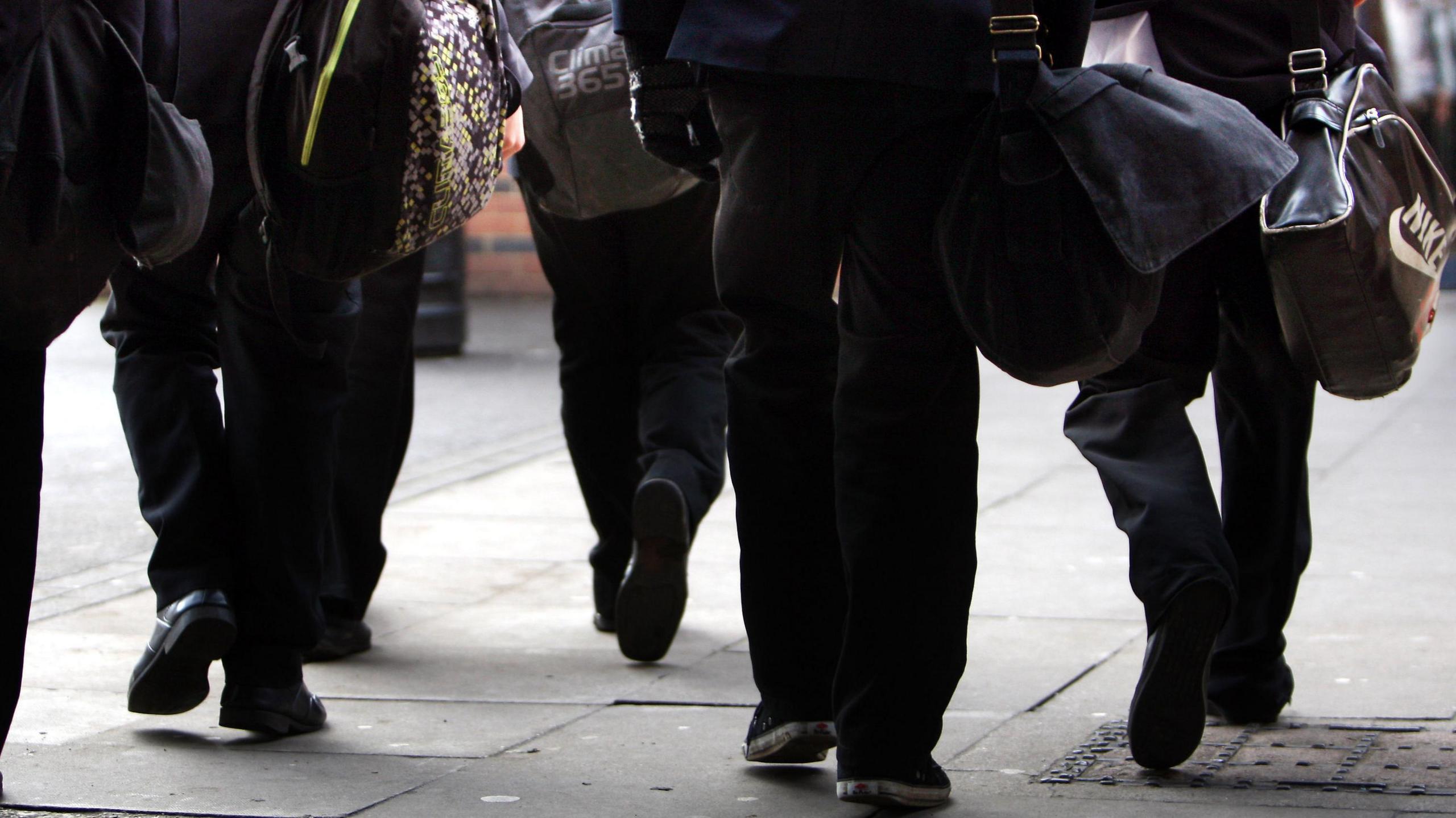
The data was taken from forces in England and Wales in the year to March
- Published
More than 3,000 children were strip-searched by police in a year, and more than a third of them were black, according to Home Office data.
The figure equates to 5% of strip-searches carried out by 28 police forces in England and Wales in the year to March.
The release follows the Child Q scandal earlier this year in which a black schoolgirl was strip-searched by police while on her period.
Campaigners say the practice is "disturbing" but the Home Office says strip-searches play an "important role" and the safeguarding of children is taken "extremely seriously".
Of 43 police forces, 28 provided data from their areas, including the Metropolitan Police. Across the collective area, a total of 65,336 strip-searches were carried out - 3,133 of them were on 10-17 year olds. A total of 1,096 of those searched were black.
Some 9% of the strip-searches carried out on the age group took place in custody.
The Home Office data also showed the "most notable differences" between the the searches on adults and children - with higher proportions of black children (35%) being targeted compared with adults (19%), the Home Office report said.
Fewer than half (43%) of all children strip-searched were of a white ethnic background, compared with 65% of adults, it added.
However, the report said that as only 28 police forces had provided figures, the data should be "interpreted with caution".
Children's Commissioner Dame Rachel de Souza said she was "deeply concerned that police aren't fully considering the safeguarding and welfare of vulnerable children".
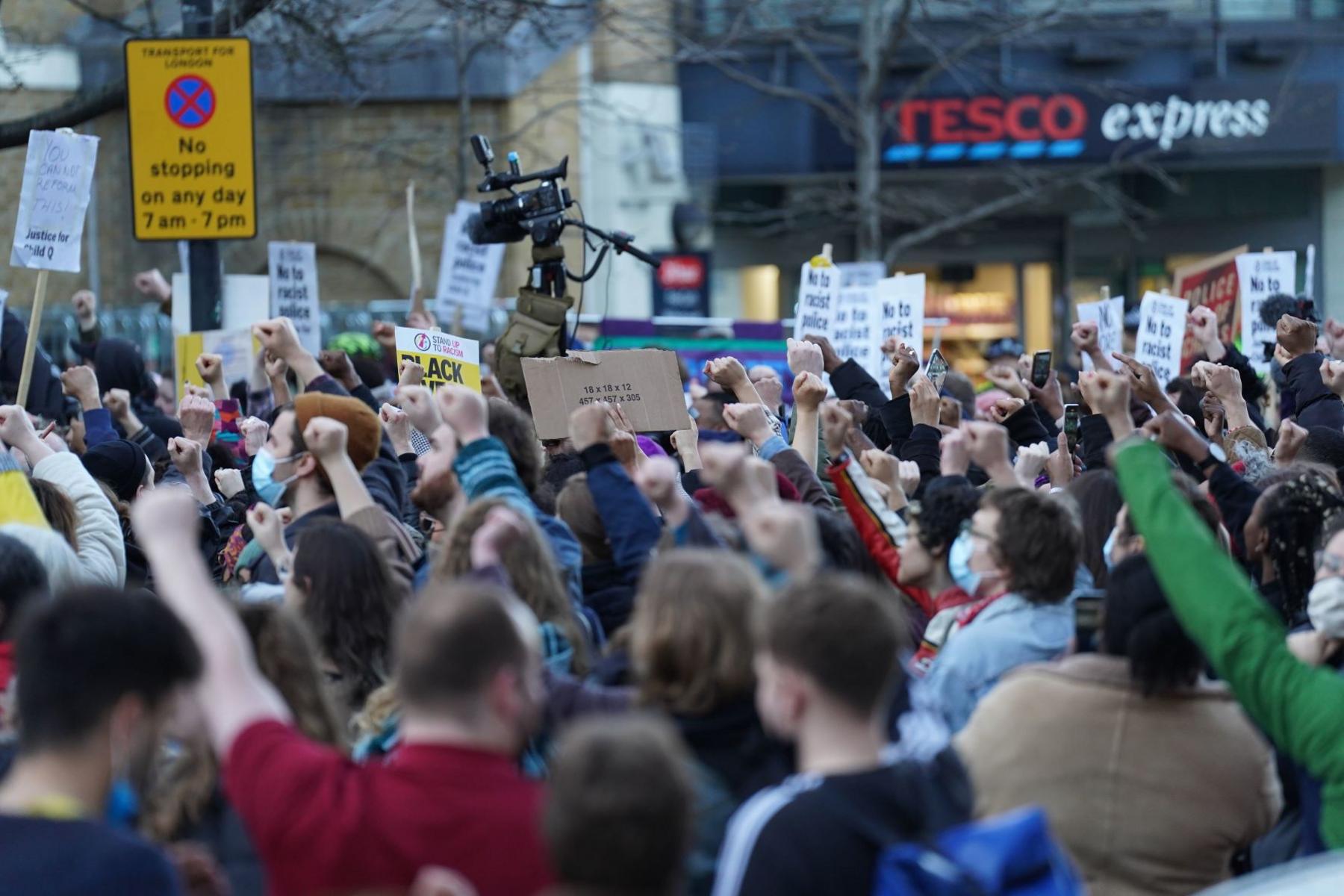
Details of 650 strip-searches on children by the Met sparked protests in east London
She welcomed more scrutiny and transparency of strip-searches involving children but said: "More action is needed... I will not be satisfied until national guidelines are changed to ensure that children are strip-searched only in the most exceptional situations and there are robust safeguards in place.
"The scale of this horribly intrusive practice and the disproportionate numbers of black children being searched, is extremely concerning."
Iryna Pona, policy manager at The Children's Society, said: "We urge the Home Office and police leaders to investigate why so many children are being strip-searched and review guidance and training for officers so that vulnerable young people are protected."
The NSPCC said it was "clear that adultification of children and racism are affecting police searches of children, not just in London but across the country".
The Home Office said it was one of the most "intrusive powers" available to the police, but that it played "an important role in their efforts to protect the public, including children".
A spokesperson said: "Any child strip-searched in custody should be accompanied by an appropriate adult unless they specifically request otherwise and the appropriate adult agrees.
"We take the concerns raised about children's safeguarding extremely seriously."
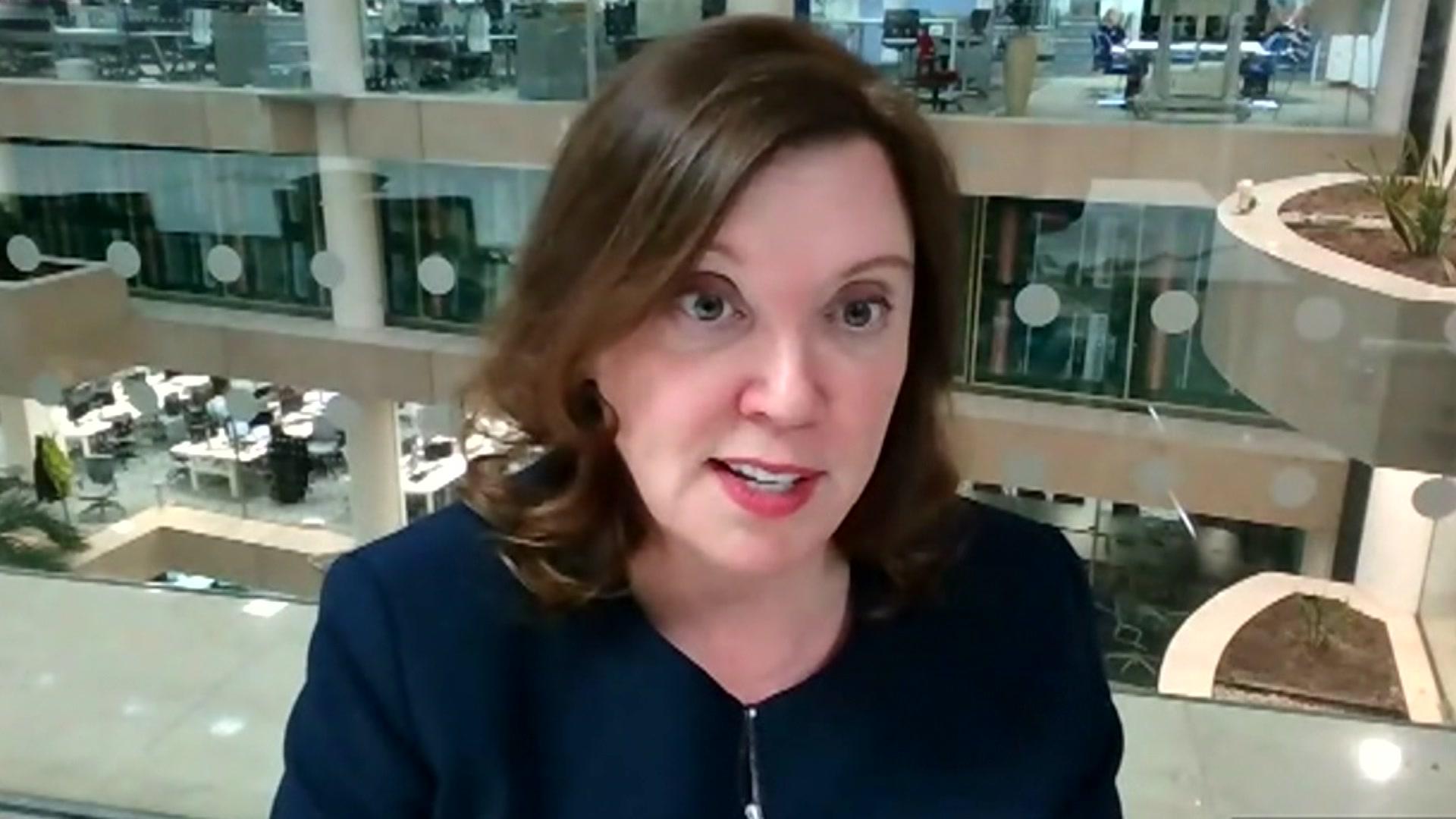
Children's Commissioner for England Rachel de Souza is "deeply concerned" by the figures
The police watchdog, the Independent Office for Police Conduct (IOPC), is currently investigating several high-profile incidents of strip search of children, including the case of Child Q in east London in 2020.
The 15-year-old was targeted after being wrongly suspected of carrying cannabis at school. The search by female Metropolitan Police officers took place without another adult present and in the knowledge the girl was menstruating, a safeguarding report found.
A review conducted by City & Hackney Safeguarding Children Partnership (CHSCP) concluded the strip-search should never have happened, was unjustified, and racism "was likely to have been an influencing factor". Scotland Yard has apologised and said it "should never have happened".
Figures later obtained from Scotland Yard by the Children's Commissioner showed more than 650 children underwent "intrusive and traumatising" strip-searches by the Metropolitan Police between 2018 and 2020, with black boys disproportionately targeted.
According to the report released on Thursday, the largest age group of those strip-searched in the year to the end of March was between 21-30 (21, 579), followed by 31-40 (19,865). The majority, 87%, were male.
Related topics
- Published14 July 2022
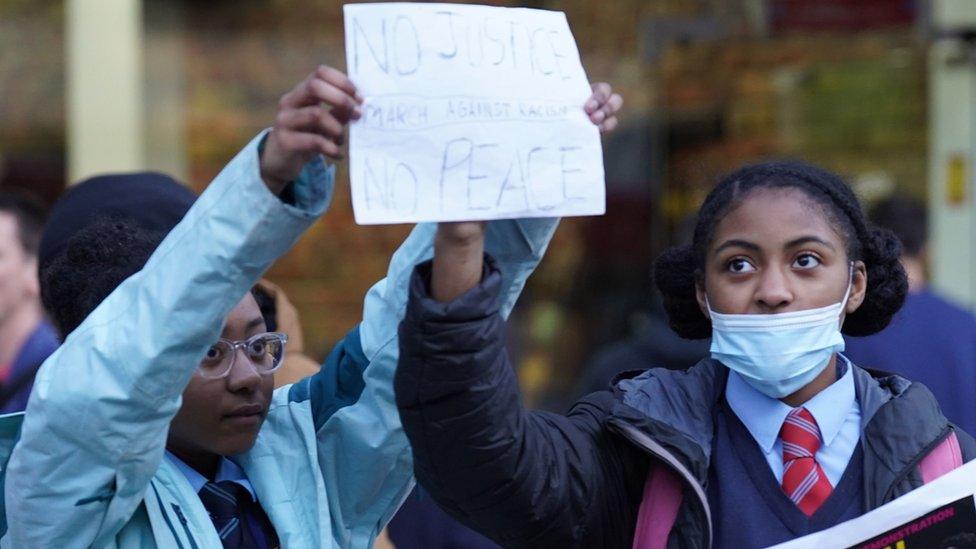
- Published24 June 2022
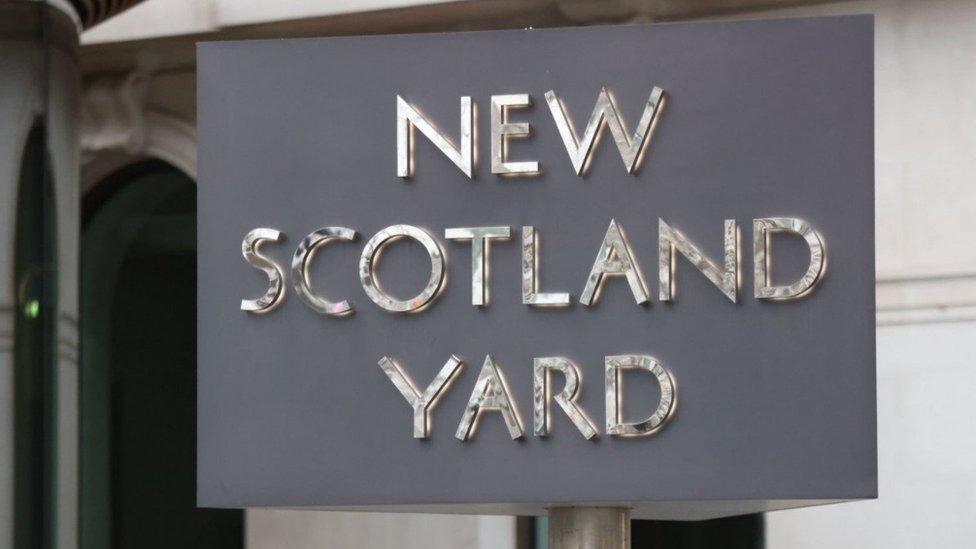
- Published14 June 2022
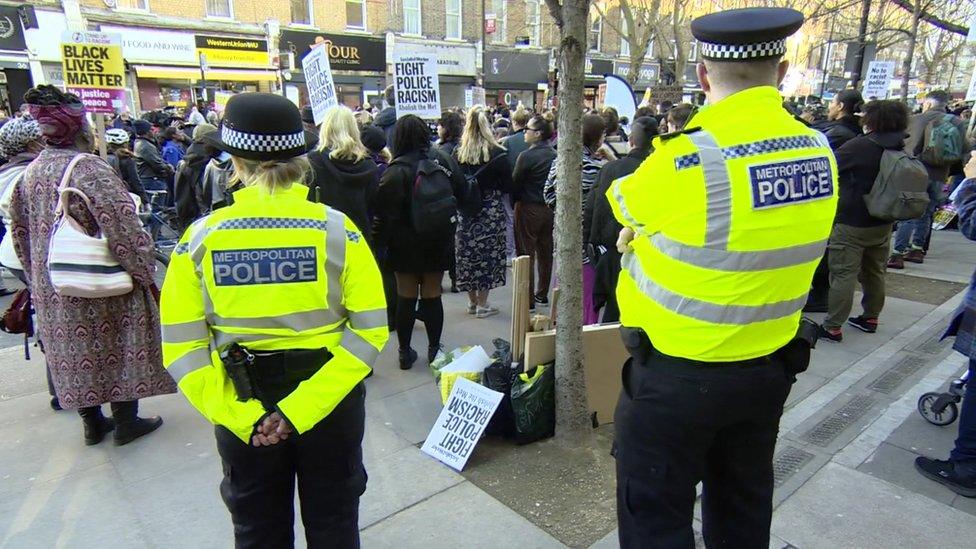
- Published25 March 2022
